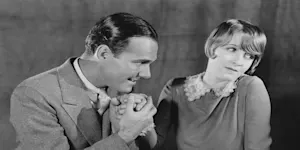What Makes This Word Tick
"Adroit" is a word that just dances off the tongue, doesn't it? It's got a certain finesse about it, much like the people it describes. An adroit person can navigate tricky situations with ease, demonstrating skill and cleverness in both thought and action. Whether it's fixing a leaky faucet or charming a room full of people, an adroit individual knows just what to do.
If Adroit Were a Person…
Imagine if adroit were your neighbor. They'd be the type who could repair their own car, bake a pie from scratch, and lead a book club discussion all in one day. Charmingly modest, yet secretly proud of their capabilities, they'd be the person you'd call first for advice when in a pickle. And all without breaking a sweat!
How This Word Has Changed Over Time
Since its entrance into the English language in the early 17th century, "adroit" has consistently complimented those with dexterity or mental sharpness. While some words shift wildly over time, "adroit" has stayed true to its meaning. It has evolved to encapsulate more intellectual skill rather than just physical dexterity.
Old Sayings and Proverbs That Use Adroit
Though not overly common in ye olde proverbs, the spirit of "adroit" can be seen in sayings like "A smooth sea never made a skilled sailor," which celebrates the wisdom and skill accrued through experience.
Surprising Facts About Adroit
"Adroit" has a cousin in the world of French language—droit—which means "right" or "correct." This origins hint at the word's association with right-handedness, once considered the more skillful hand. And, interestingly, "adroit" has a nuanced implication that the person is not only skilled but also smart about it.
Out and About With This Word
"Adroit" isn’t a word you might hear tossed around casually at the grocery store, but those in professional circles, especially in law or consulting, appreciate its complimenting tone. It's a gem in the toolbox of words for describing someone with exceptional tact and dexterity.
Pop Culture Moments Where Adroit Was Used
While "adroit" hasn't headlined any songs or movies, it’s the kind of word you might hear in a polished interview with an accomplished athlete or a documentary about a brilliant artist. Think of a poised chess player describing their strategy as "adroit."
The Word in Literature
In literature, "adroit" could easily fit on the lips of a character in a Jane Austen novel, or appear in a modern thriller to describe the antagonist's cunning skills. It’s versatile and compelling, a sophisticated way to describe deftness.
Moments in History with Adroit
If "adroit" had been on the lips of people during Napoleon's era, it might have described the man's strategic mind. Or perhaps during the space race, when NASA engineers adroitly solved complex problems on the fly. These moments exemplify the word’s spirit.
This Word Around the World
In France, "adroit" translates directly and holds its meaning well, while languages like German use equivalents like “geschickt” to express a similar sentiment. In Japan, being adroit might reflect both capability and humility—a prized combination.
Where Does It Come From?
"Adroit" has its roots in the Old French word "adroit," which itself comes from "a" (to) plus "droit" (right, correct). It's essentially about having the right touch or skill.
How People Misuse This Word
Some might mistakenly use "adroit" when they mean "dexterous" if they’re leaning more towards physical skill purely. But remember, "adroit" has a more cerebral twist!
Words It’s Often Confused With
Dexterous: Focuses more on physical skill, often of the hands, whereas "adroit" is broader.
Astute: Pertains more to mental sharpness but without the dexterous undertones.
Skillful: A general term, but lacks the intellectual flair of "adroit."
Additional Synonyms and Antonyms
Synonyms for "adroit" include clever, nimble, and capable. Its antonyms would be clumsy, inept, or awkward—descriptors no one likes to hear!
Want to Try It Out in a Sentence?
Sure, here's one: "With an adroit flick of his wrist, the magician made the coin disappear, leaving the audience in awe." See how it conjures an image of both skill and subtlety?
















